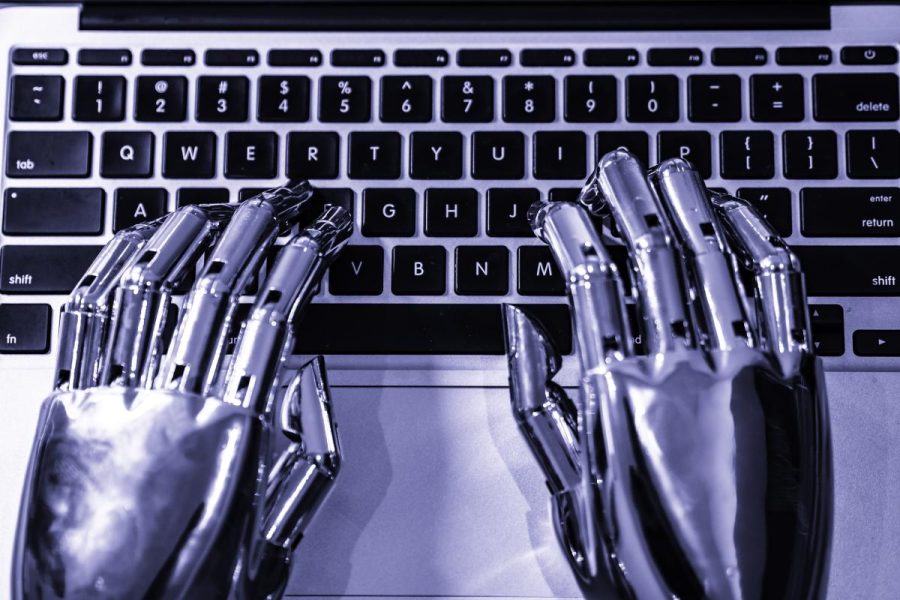The Effects Of ChatGPT On Education Debated
Artificial Intelligence has become of major prominence in the world lately which inevitably is predicted to bring many changes to several fields of work, one of them being education.
Schools are starting to utilize technology while adopting new changes to how things are done.
Chat GPT is an AI-powered chatbot that uses language model processing to speak to humans.
It has the ability to respond intelligently to just about anything you ask of it. Though, its knowledge cut-off is limited to 2021.
The knowledge can even be used to create better learning experiences for students.
When Program Director of Media Studies, Louis Grasso, was asked about AI, he responded by saying the following; “Some jobs are done better with AI, it’s even used in reviewing resumes from a large pool of candidates.”
Grasso even went on to state that AI is limiting on the side of employers searching for new hires because it looks for keywords that match the description of the job.
But, the benefits could outweigh the negatives in the eyes of some.
Schools could start creating a tailored learning experience. Normally, this would be based on the needs of the student.
This can provide a stronger and more accessible way of learning for all. Teachers, mentors, or professors can now utilize the tool to learn more about the students’ learning capabilities.
When done right, a student’s strengths and weaknesses can be improved upon.
As a result, the students will feel understood and encouraged to continue their learning even in the later parts of their lives.
This may also help when professors need to develop a curriculum. For others, it may be used to send emails or proofread them, at the very least.
For students, this can act as a tool to help with their homework or ask questions to explain something further.
Educators are concerned that this will lead to cheating in and out of the classroom as well as plagiarism.
Bigger school districts such as New York City and Los Angeles began to ban its usage.
Others have started to question whether it would be of benefit to let students utilize it for brainstorming or more creative purposes.
Although the opinions shared remain valid, to those particularly worried, it’s best to know that there are already tools in place by the maker of ChatGPT to detect that available on all major educational resources.
The maker of ChatGPT also reassured those who maintained concerns that there are clear limitations in the AI that allow the detection of misuse.
This could even assist students whose primary language isn’t English. AI could be used as a tool for translation during classroom discussions.
It’s important to be inclusive in the learning process, so all students can feel welcomed and invited.
Some have even raised concern over bias that has appeared in the technology.
For example, ChatGPT has seemingly made statements that may be perceived as displaying bias or a predefined sense of morality.
ChatGPT says it is never morally permissible to utter a racial slur—even if doing so is the only way to save millions of people from a nuclear bomb. pic.twitter.com/2xj1aPC2yR
— Aaron Sibarium (@aaronsibarium) February 6, 2023
This has educators expressing their thoughts on the matter going on how it can affect the perceptions and ideas of many students.
In other words, they’re trying to say that AI has the power to corrupt the minds of students enabling them to think a certain way, regardless of considerable extensive research or studies.
The outcome that is believed to occur as a result is one where students have ideas or thoughts that aren’t theirs.
Open AI, the company behind the technology, has stated that the language model is in its infancy stages and that it will improve as time goes on.
Microsoft recently released its Bing AI to beta testers and many have reported bizarre encounters with it.
Others have had more terrifying conversations with the chatbot.
Despite all this, it’s going to take time for educators to solidify their opinion on the technology. Others have already set their expectations of AI even without all the information.

Joshua Ochoa Diaz is a junior year Journalism major at Mercy College.
He writes a column titled "Cluttered Library of Thoughts", where he likes to talk...








